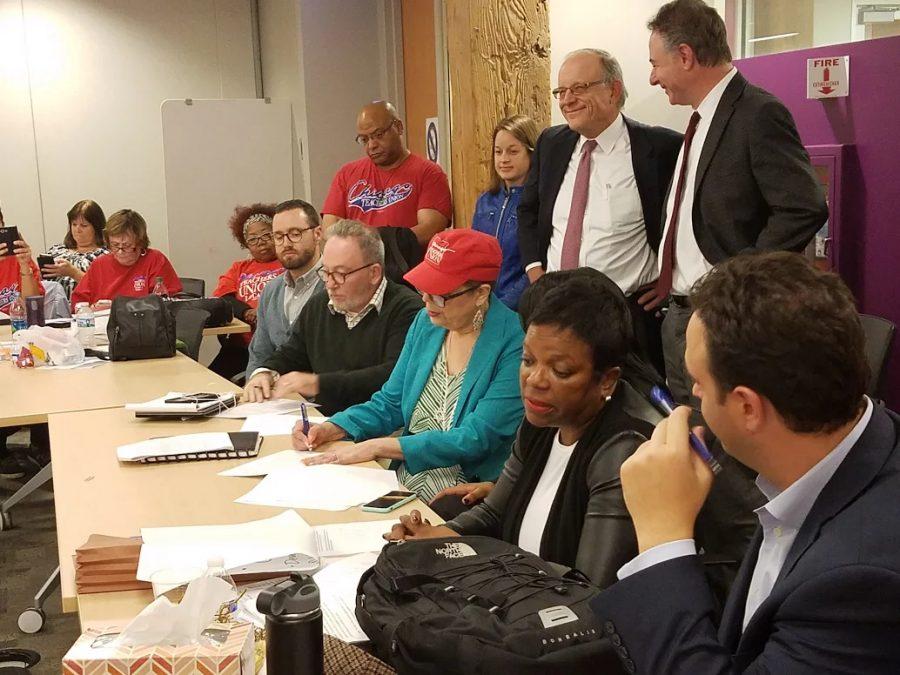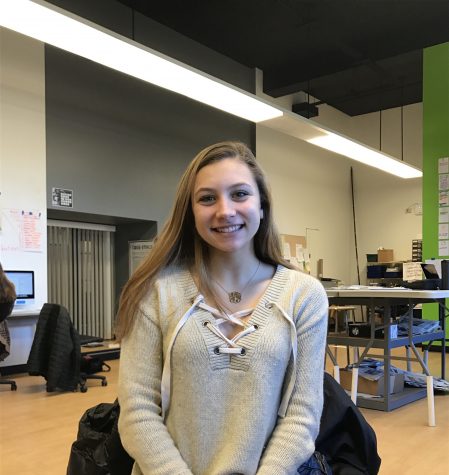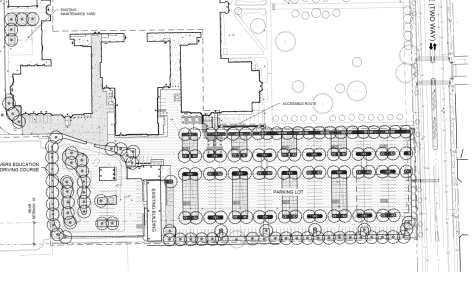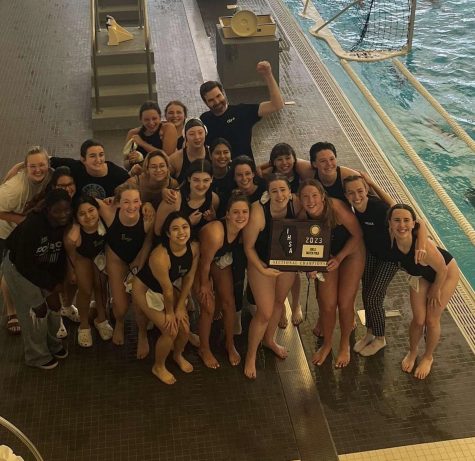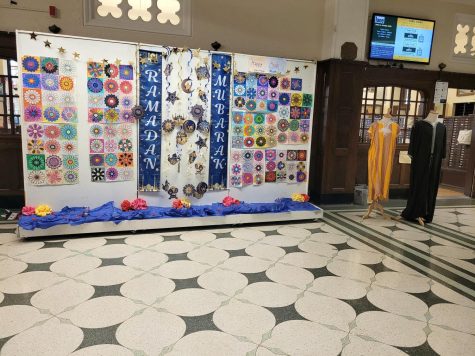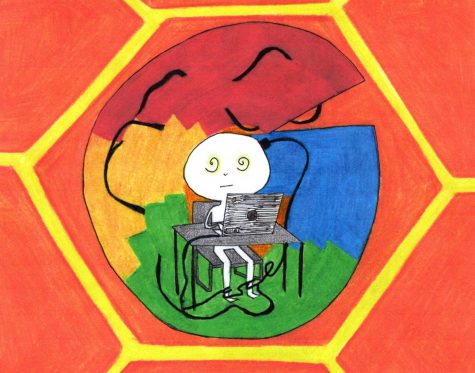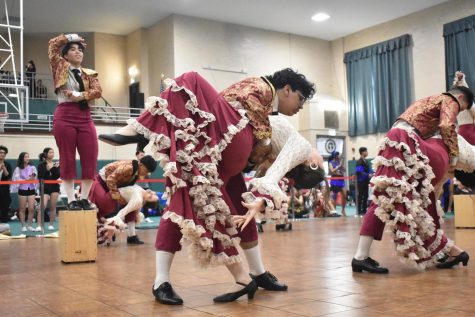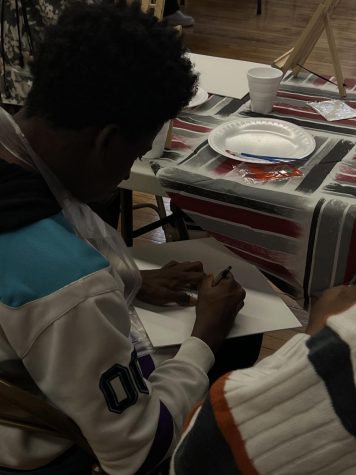No strike — what’s the deal?
Karen Lewis, President of the Chicago Teachers Union, and Joseph Moriarty, Chief Labor Relations Officer for CPS, sign the tentative agreement.
October 31, 2016
The Cubs losing to the Giants in the 13th inning of game three of the NLDS was not the only reason CPS students were up until 12 a.m. on Oct. 11.
The email CPS students received saying, “The CTU and Chicago Public Schools have reached a tentative contract agreement,” and that school would be in session, was a big surprise.
Mr. Maslanka, a member of the Big Bargaining team, was prepared for a strike.
“Sunday I went and bought a new pair of Nikes with red in them,” he said. “People were asking me about updates and all I could say was that I bought a new pair of Nikes. Meaning I was sort of anticipating to be walking the picket line on Tuesday.”
Waiting until the last minute was an advantage for the city because it gave minimal time for the teachers to accept the deal. Maslanka said the deal given to the teachers at about 8 p.m. on Monday night only gave teachers around three hours to review it and make more requests.
Negotiations about the CPS teacher contract started 22 months ago, Maslanka said. There was a deal proposed by the city in January 2016, but CTU rejected it. No further formal proposals were made until after the October strike date was set on Sept. 28.
The big question everyone is asking now is: What has changed since the January deal that the teachers see as an improvement?
One of the major issues on the table was the seven percent pension pickup. Mr. Bertenshaw, one of Lane’s delegates, explained the situation when he said, “[Making payments to teachers’ pensions] was a contractual obligation — it was a law.
“You [city officials] needed to do this over the course of the last 20 years, and you’ve done it 25 percent of the time,” Bertenshaw said. “I’m going to argue that if you did that in the private sector, you’d go to jail in about a minute because you signed this as the law, and in order to get around that law, you sort of just made new laws.”
The January contract offer stated that the pension pickup would have been eliminated. In the new agreement, the pension pickup will remain for all current teachers, but will not be given to teachers who are hired after Jan. 1, 2017, according to DNAinfo. Instead, the new teachers will receive two raises to their salary which will end up equaling that seven percent.
History Department Chair Mr. Carity said the pension pickup is a very important issue to the teachers, and is glad it still remains.
The issues about raises were also addressed in the new pension deal. The agreement states that there will be an overall raise of 4.6 percent through 2018 and 2019, instead of the 8.75 percent increase that would have been given over the course of four years, according to DNAinfo.
Although many were pleased, many remained confused as to where this money suddenly came from. The Reader’s Ben Joravsky reported that $90 million came from Chicago’s Tax Increment Financing (TIF) funds which Mayor Rahm Emanuel finally dove into.
This TIF bank account is filled with around $500 million from property taxes, according to Joravsky. The mayor can spend the money in whichever way he pleases, for example, beautifying the city. Mayor Emanuel gave that TIF money back to the schools as a way to prevent a strike.
Another big win from the tentative contract, according to Maslanka, was that all classrooms over 32 students for grades K-2 will receive a teacher’s assistant.
Maslanka and Carity both said that the October offer was a huge improvement from the original January deal, and Carity said he would “be surprised if we didn’t” accept the deal.
Teachers, paraprofessionals, and clinicians will begin voting on the tentative agreement on Oct. 31 to allow teachers enough time to review the details of the contract.

